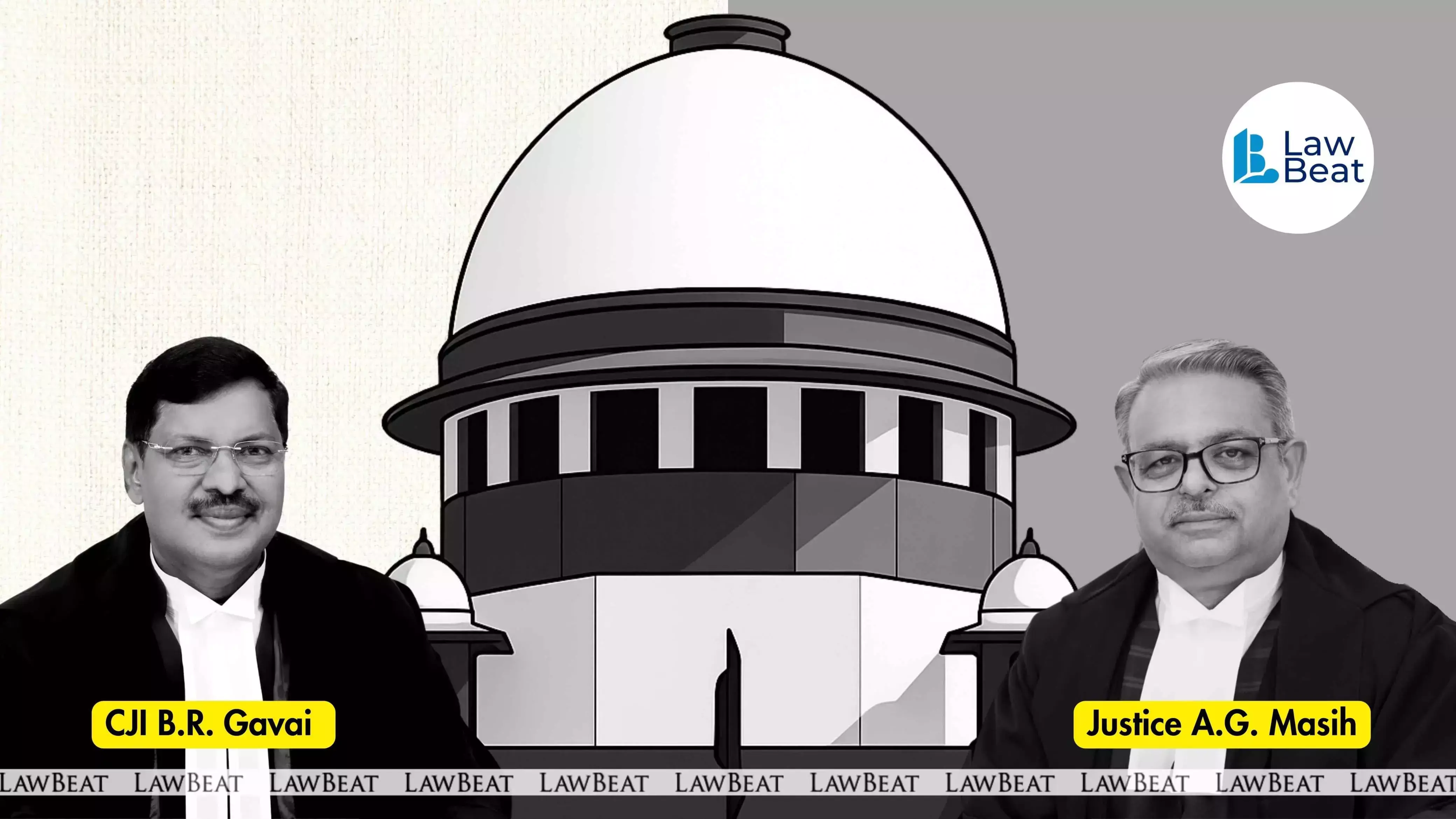Complainant's status not enough for prosecution under SC/ST Act: SC

X
Case involved allegations that a land allotment dispute was maliciously used to falsely implicate a Scheduled Caste man under the SC/ST Act, despite the conflict being between two SC groups
The Supreme Court, on July 23, 2025, clarified that a person cannot be prosecuted under the SC/ST (Prevention of Atrocities) Act solely because the complainant belongs to a Scheduled Caste or Scheduled Tribe. Court stressed that the alleged offence must be shown to have been committed specifically on account of the victim’s caste status.
A bench of Chief Justice of India B R Gavai and Justice Augustine George Masih said the misuse of the statute to settle personal scores or to harass individuals cannot be permitted if it is apparent.
Referring to Masumsha Hasanasha Musalman v. State of Maharashtra (2000) and Ravinder Singh v. Sukhbir Singh and others (2013), the bench pointed it has been said, the court should in such a situation be not hesitant to step in and stop the said misuse.
"Prosecution needs to be quashed at an early stage to prevent undue harassment of the accused where there is clear legal infirmity in the prosecution case, such as the allegations, even if taken at their face value, do not disclose an offence or the entire case is a bad faith exercise weaponized to settle personal scores, rather than seeking justice,'' the bench said.
The bench also pointed out, this court in Dr. Subhash Kashinath Mahajan v. State of Maharashtra and another (2018) had also observed that there has been an alarming increase in false complaints under the SC/ST Act, particularly against public servants and judicial officers with an oblique motive to settle personal scores or to harass individuals. Such acts cannot be allowed to be perpetuated and need to be stopped at the very outset so that there is no miscarriage of justice.
The court dismissed an appeal filed by Konde Nageshwar Rao against the judgment passed by the Single Judge of the High Court for the State of Telangana and the State of Andhra Pradesh on October 15, 2014.
The High Court had then allowed a petition under Section 482 of Code of Criminal Procedure (CrPC) preferred by Respondents No. 1 and 2, who were Accused 1 and 2 in a case for the offences under Section 3(1)(viii), (ix) & (3)(2)(vii) of the Scheduled Castes and the Scheduled Tribes (Prevention of Atrocities) Act, 1989.
The origin of this case was from a land allotment dispute in Duvva village, where the appellant herein alleged that Respondent No. 2, who was the Mandal Revenue Officer (MRO) at the behest Accused No. 3, the proprietor of Ramakrishna Cine Theatre of the same village, manipulated the allotment of two plots to the upper caste individuals related to him, earmarked for Scheduled Caste/Scheduled Tribe beneficiaries.
This allotment was objected by the appellant, because of which it is alleged that he was falsely implicated in a criminal case as part of a conspiracy in retaliation.
The criminal proceedings initiated against the appellant were based upon a clash that occurred on May 15, 1995 between the two groups of Scheduled Caste.
This action of wrongful involvement in the case was on account of his belonging to the Scheduled Caste, and it was for that reason that he was being prosecuted with a malicious intent. After the report was submitted by the Competent Authority, he was found innocent and thereafter the criminal proceedings which were initiated against him were dropped.
The court, however, said, going by the contents of the complaint itself, it would reflect that the same could not be sustained for the reason that the dispute occurred between two Scheduled Caste groups, and the same was not driven by caste-based malice.
No independent discretion was exercised, nor was it with any mala fide intent, either for issuance of the Pattas or for arresting the appellant, rather the same was based upon the official directives from the Sub-Collector and the District Collector, the court noted.
The bench further found, since it was admittedly a dispute between two groups belonging to the Scheduled Caste, and the clash was not with any other community, rather intra-caste, involvement of the appellant because of him being a Scheduled Caste in the criminal case does not arise, what to say of mala fide.
"No evidence has been brought on record which would indicate mala fide intention on the part of Respondent No. 2 or any connivance. The bald allegations against the appellant would not in itself be sustainable," the bench said.
Since the grievance was not really relatable to the false and malicious involvement in the criminal proceedings against the Appellant and his family members because of them belonging to Scheduled Caste and the very intent being absent, the offences for which the prosecution has been launched are not made out, the court held.
"The observations and conclusions arrived at by the High Court are based upon the proper appreciation of the pleadings, the correct reading and application of law and thus, cannot be faulted with," the bench said, upholding the 2014 High Court's order and dismissing the appeal.
Case Title: Konde Nageshwar Rao Vs A Srirama Chandra Murty & Anr
Judgment Date: July 23, 2025
Bench: Chief Justice of India B R Gavai and Justice Augustine George Masih
Next Story
